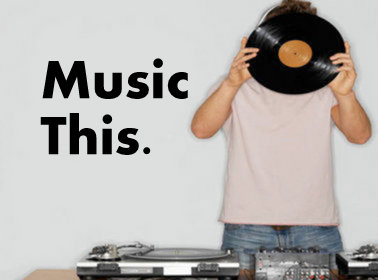
In article 8 Logical Rebuttals of Anti-Piracy Arguments, author William Barnes makes an attempt to rebuttal points RIAA layers have made in court regarding piracy. First coming across the article I knew I would be in for a treat- unfortunately I was sadly disappointed. The arguments made by Barnes had the ability to be strong and compelling- taking RIAA’s words and turning them on their back- but just like the music industries fight against music piracy- the argument fell a little short. I would like to bring about the 4 weakest arguments Barnes presents – and maybe give him a little advice as to how they could be made stronger:
Here are the rebuttals made:
1. It’s not that expensive to just pay for it
Plain and simple- this one is a lie. Which I think we have all come to know through CD prices and Online downloading capitalizing on newly released singles. There are tons and tons of statistics and argument that could back this one up. Barns justifies the ridiculousness of this claim by stating that if you spend $500 yearly or more on music- which in his opinion “could make the difference between sleeping in a bed and sleeping on someone’s couch”, you should be allowed to steal music. I am sorry- but weak sauce. This particular point has so many great statistics on the rising price of music, and how the music industry is exploiting our buying power by profiting big time from CD prices they have made ridiculously high because- well….they can.
2. Music piracy causes huge amounts of economic damage
Here Barnes is basically giving us stats to agree with the RIAA. He points out how music piracy causes $12.5 billion in losses every year, and a job loss per annum of 71,060. He follows this depressing statistic by General Motors and Chrysler estimated 40,000 job losses- trying to argue by comparison. It’s plain and simple- he’s arguing against his case- not for it.

3. It’s so much easier to use a pay service
I completely disagree with this one- but not with Barnes rebuttal. I believe it is just as easy to download illegally as it is legally- sure it takes a couple more steps- but the process is a sinch once you figure it out. Barnes argues against this one by showing a UK report that stated the average teenager in the UK has 800 pirated songs on his or her digital music player of choice. Come on Barnes- we all know that teenagers are the most tech savvy generation there is. The evidence is in-sufficient – and could have been made better by a study using older generations- or no study at all! I think all that is needed here is the fact that so many people successfully illegally download- if it was really that hard- no one would do it!
4. Pirated music is lower quality
Again- I don’t agree. But- then again I don’t agree with Barnes explanation. He states that if the quality of music is indeed lower- that “pirates” learn the lay of the land and become acquainted with digital music terminology in order to select higher grade songs. Although he presents the presence of high grade music - he does the RIAA justice by acknowledging the fact that low quality music does exist. This argument could have been made stronger by comparisons- what qualities affect quality and what similarities are
-Lizzy B.




No comments:
Post a Comment